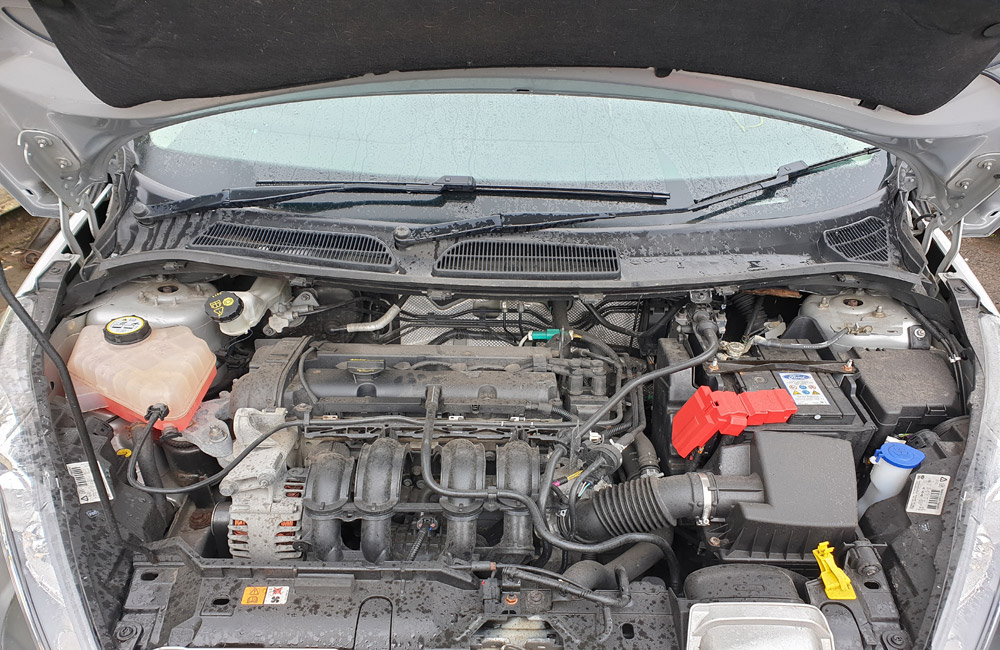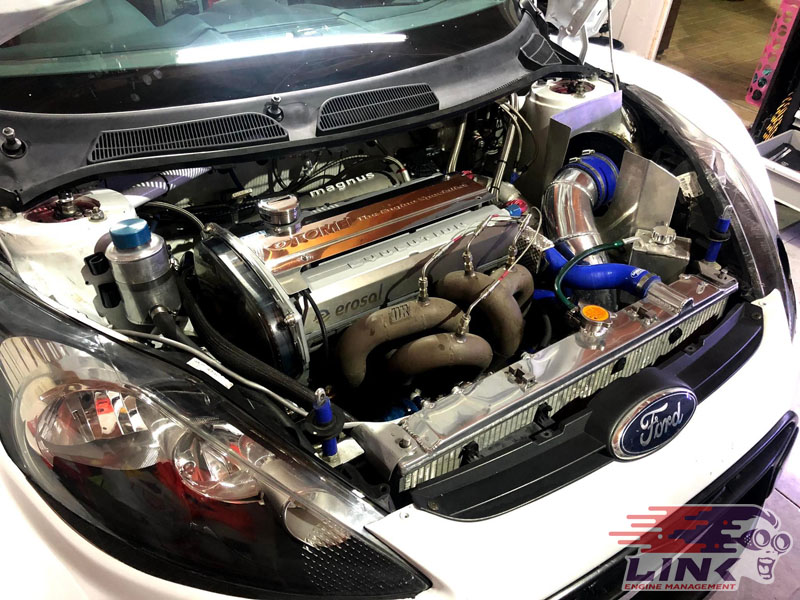How a Well-Maintained Ford Fiesta Engine Improves Vehicle Longevity
How a Well-Maintained Ford Fiesta Engine Improves Vehicle Longevity
Blog Article
The Future of Engines: Developments Driving Lasting Power Solutions
As the auto sector navigates the important change in the direction of sustainability, the future of engines is increasingly specified by groundbreaking technologies. Electric engine innovations, along with promising developments in hydrogen gas cells and biofuels, are improving the landscape of power services. The emergence of crossbreed systems further complicates this evolution, providing both possibilities and challenges to reduce discharges successfully. Coupled with the combination of expert system in engine style, these technological strides raise vital questions about their long-lasting practicality and effect on traditional standards. What might this mean for the industry and customers alike?
Electric Engine Advancement
The development of electrical engine developments indicates a crucial shift in the aerospace and auto industries, driven by the urgent requirement for sustainable options to fossil fuels. This shift is characterized by significant advancements in battery innovation, power electronic devices, and electric motor layout, which collectively boost the efficiency and efficiency of electrical engines.
Current developments have brought about the production of lighter, a lot more energy-dense batteries, such as lithium-silicon and solid-state batteries, which guarantee longer ranges and much shorter charging times. Additionally, improvements in electrical motor effectiveness, such as using irreversible magnets and progressed cooling down systems, allow electrical engines to run properly under differing conditions. These enhancements not only improve vehicle efficiency however likewise add to a reduction in general energy usage.
Moreover, the integration of sophisticated software program formulas has actually maximized power monitoring in electrical lorries, enabling regenerative braking and anticipating billing strategies. As suppliers progressively embrace electric propulsion, the vehicle and aerospace fields are seeing a paradigm change towards greener technologies. This advancement not only fulfills regulative demands however likewise straightens with customer choices for eco-friendly transportation remedies, solidifying electrical engines as a cornerstone of future sustainable movement.
Developments in Biofuels
As the aerospace and vehicle sectors significantly focus on lasting power resources, improvements in biofuels emerge as a corresponding option to electric engines. Biofuels, obtained from natural materials such as crops, waste, and algae, offer an innovative method for decreasing greenhouse gas exhausts and dependence on fossil gas.
Recent study has concentrated on boosting the efficiency and sustainability of biofuel production. Second-generation biofuels use non-food feedstocks, decreasing competition with food supply and lowering ecological influence. Advancements in artificial biology have enabled the design of microbes to create biofuels extra effectively, leading to greater yields and reduced production expenses.
Additionally, the advancement of drop-in biofuels enables seamless assimilation into existing framework, making it possible for a smoother transition for markets commonly based on fossil fuels. ford fiesta engine. These gas can be used in existing engines without adjustments, facilitating their adoption across different markets
Investments in biofuel modern technology, in addition to helpful policies, are vital to drive development and scalability. As the international community looks for to fight environment modification, biofuels use a pragmatic, instant solution that lines up with the overarching objective of sustainability in transportation and aviation.
Hydrogen Gas Cell Technology
A growing number of firms and researchers are checking out hydrogen gas cell technology as a practical alternative to conventional power sources in transportation and energy systems. This technology transforms chemical energy from hydrogen into power with an electrochemical reaction, with water as the only result, making it an eco pleasant choice.
The core of hydrogen gas cells is the fuel cell stack, where hydrogen molecules are divided into protons and electrons. The circulation of electrons produces electricity, while protons relocate through a membrane layer to integrate with oxygen from the air, developing water. This process leads to high efficiency and low discharges, positioning hydrogen gas cells as an essential player in the transition to lasting energy.
Considerable improvements have been made in boosting the longevity and effectiveness of fuel cells, along with lowering expenses via innovative production strategies. Moreover, the development of hydrogen production methods, such as electrolysis powered by renewable energy resources, boosts the sustainability of the overall system. As infrastructure for hydrogen refueling expands and production approaches come to be more effective, hydrogen gas cell technology holds terrific promise for decarbonizing different markets, including durable transportation and stationary power generation.
Hybrid Solutions and Their Effect
Hybrid systems represent a significant advancement in lasting engine modern technology, combining conventional interior combustion engines with electrical propulsion to maximize power effectiveness and minimize emissions (ford fiesta engine). This twin approach enables lorries to utilize both power sources, allowing greater adaptability in power usage and lowering dependence on fossil fuels

In enhancement index to environmental advantages, hybrid systems use consumers a viable shift towards totally electric lorries. They alleviate variety stress and anxiety by combining the comfort of gas with the advantages of electric propulsion, making them an attractive alternative for a broader audience.
The Duty of AI in Engine Design
Leveraging advanced algorithms and machine understanding strategies, the auto market is significantly integrating man-made intelligence (AI) into engine style processes. AI enhances the effectiveness and effectiveness of design by assessing substantial datasets to recognize optimum setups and efficiency criteria. This ability enables designers to replicate numerous operating problems and anticipate engine habits under several scenarios, considerably decreasing the time and cost connected with traditional prototyping techniques.
In addition, AI helps with the advancement of sophisticated products and combustion processes tailored for sustainability. By optimizing gas effectiveness and reducing exhausts, AI-driven styles align with worldwide initiatives aimed at minimizing the carbon impact of vehicle engines. Device knowing algorithms can likewise anticipate maintenance demands, resulting in boosted integrity and durability of engine parts.
Additionally, AI contributes in the combination of electrification modern technologies, such as crossbreed systems, where it can enhance battery monitoring and energy recuperation procedures. As the sector moves in the direction of even more lasting power solutions, the role of AI in engine design becomes progressively important, driving innovation and enhancing the performance of future engines. Eventually, the partnership between AI and engine design proclaims a brand-new era of smarter, cleaner, and much more efficient vehicle modern technologies.

Final Thought
In final thought, the future of engines is being shaped by a convergence of innovative technologies that focus on sustainability. Electric engine improvements, biofuel advancements, hydrogen gas cells, and hybrid systems jointly add to a significant reduction in exhausts and ecological impact.
Electric engine developments, along with appealing growths in hydrogen gas cells and biofuels, are reshaping the landscape of power services. Additionally, improvements in electrical motor efficiency, such as the usage of long-term magnets and progressed cooling systems, make it possible for electrical engines to run effectively under varying problems. By maximizing gas performance and reducing Look At This emissions, AI-driven layouts straighten with global efforts intended at minimizing the carbon footprint of auto engines. you could try this out As the market moves towards more sustainable power services, the duty of AI in engine style ends up being increasingly vital, driving technology and improving the efficiency of future engines. Electric engine improvements, biofuel developments, hydrogen fuel cells, and crossbreed systems jointly contribute to a significant decrease in exhausts and ecological impact.
Report this page